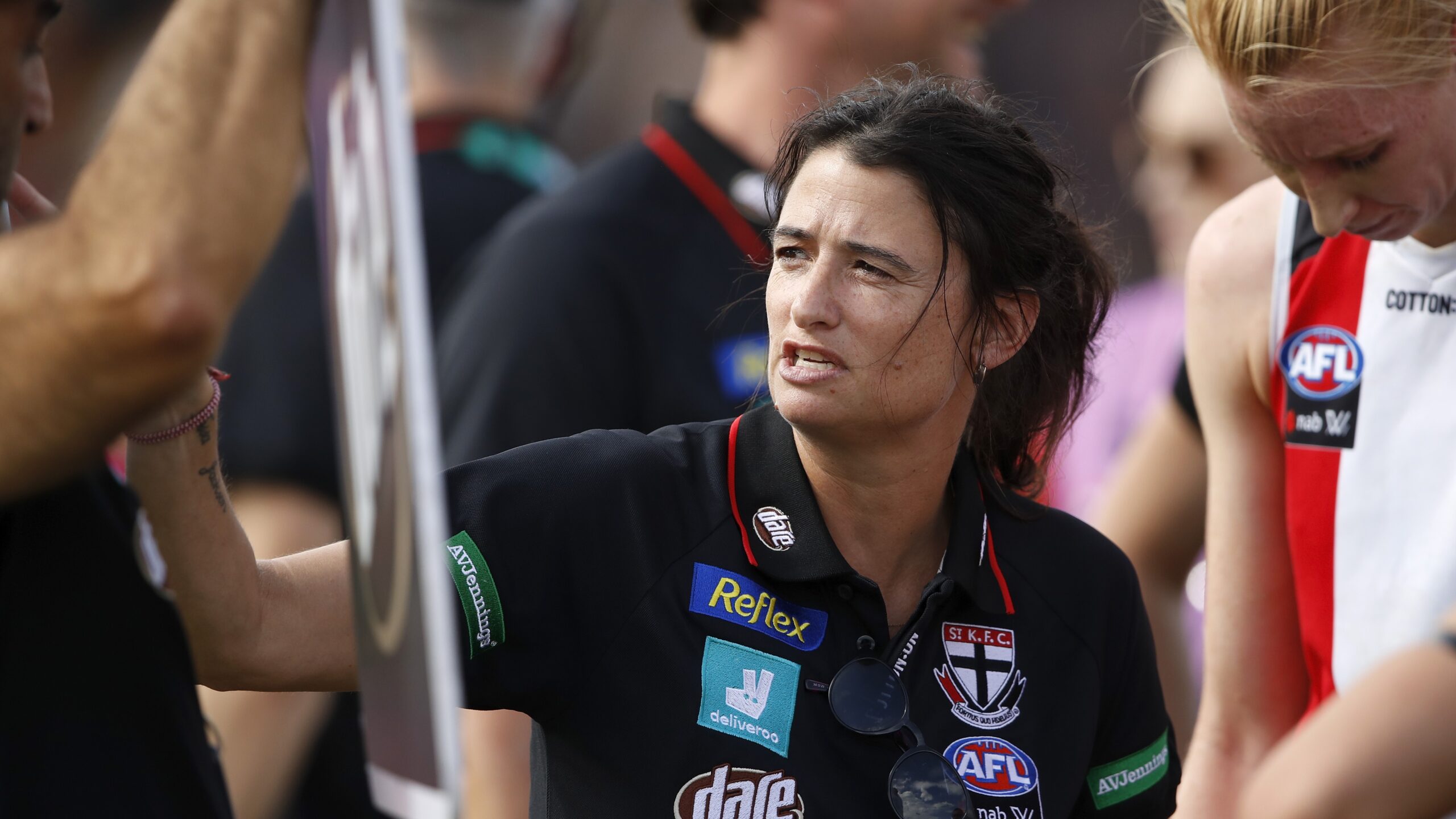Words by TYF Program Psychologist Luke Jankie
Life is filled with different moments – positive, negative, some more significant than others.
Some moments go by and are never thought of again, whilst others may leave a lasting impression building toward future experiences.
In football, there are plenty of these moments – wins, losses, injuries, accidents, team selection, social dynamics and more.
To deal with these experiences and everything else that happens outside of football as well, there are a variety of different psychological processes at play.
When we live through particularly stressful events, it is common to experience trauma. In a recent interview, Tackle Your Feelings had the privilege of meeting with former St Kilda AFLW coach Peta Searle to discuss some of her experiences around trauma.
Building on her insights, the team here at TYF would like to share some additional information on trauma and how it can present.
Trauma, when in relation to mental health, describes a series of responses to a particularly frightening or distressing event. Some common examples of events that might be experienced as traumatic include war, natural disasters, accidents, and abuse (physical, sexual, emotional).
While these events won’t always evoke a traumatic response, they are commonly associated with trauma as they can significantly threaten wellbeing. Traumatic events can occur within football as well, especially when we consider events like injury, team selection and loss.
Though some events may be commonly associated with trauma, not every stressful or threatening event will always result in trauma. What might be traumatic to one person, may not be to another.
To gauge whether someone may be struggling with trauma, it is important to keep an eye out to recognize the signs. In her interview with TYF, Searle reported a variety of signs that reflected her trauma response.
Socially, she described becoming easily overwhelmed or frustrated, which led to withdrawal and the ‘road of isolation’. Personally, she described self-sabotage tactics like escaping important relationships and increased alcohol consumption.
Amongst other signs, she also reported disrupted sleep in that she was easily woken during the night. Building on Peta’s signs, below is a list of some other commonly associated responses to trauma:
- Physical: tiredness, nightmares, restlessness, loss of appetite, headaches
- Cognitive: poor concentration, memory lapses, confusion, recurring intrusive/disturbing thoughts/images
- Emotional: Grief, fear, numbness, shock
- Behavioural: withdrawal, increase substance use, avoidance, inactivity
While these markers aren’t guaranteed to reflect trauma, they can provide information reflecting a shift in mental health, which ultimately allows us to further explore (where appropriate).
At the end of the day, the trauma response is quite complex. This article isn’t designed to help coaches boil the ocean, but rather to highlight some of the key signs that may reflect trauma and suggest some tips to consider that may help support players.
One thing that Searle described as supporting her was a variety of different grounding activities, including jigsaw puzzles, walking the dog and mowing the lawn. These kinds of tasks were perfect for her in that they required her attention and kept her focussed on task but were not challenging or complex enough to create more headaches.
While we recognize trauma is complex and there are a variety of different coping strategies. Below are a few examples of things we might encourage coaches to take on board:
- Balancing Rest and Routine
- While resting and taking time to process traumatic events is important, so is maintain engagement in regular daily activities. Coaches can gently encourage participation in football training, game day activities and general cub happenings to help people keep ticking over in an engaged and activated way.
- Substance Use
- Increased substance use can be common amongst those dealing with trauma which potentially further compounds existing issues. As role models and leaders creating the culture at football clubs, coaches can design activities that don’t revolve around alcohol. Coaches are in a unique position to role model different ways to stay active and perform without use of substances. Social events can be refocussed to revolve around food, football events, games and other things that aren’t solely dependent on substance.
- Patience and understanding
- Common responses to trauma are common responses to trauma. If you recognize that a player may be struggling, try to be warm and understanding. Let them know that while their responses may be concerning, they are normal and that expressing themselves can be helpful (whether that’s with you, another player or a professional)
Need Support? If you know someone who requires urgent assistance or support, please contact:
Suicide call back service: 1300 659 467
Lifeline: 13 11 14
Kids Helpline: 1800 551 800
Emergency: 000
Support for AFL Players: If you are a current or past AFL Player and would like to know more about our specialised wellbeing and mental health services please contact the AFL Players’ Association at wellbeing@aflplayers.com.au or Tel. 03-8651 4300 (Mon to Fri, 9am – 5pm). Click here to read our disclaimer.


